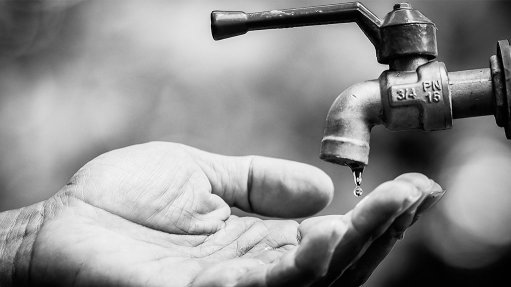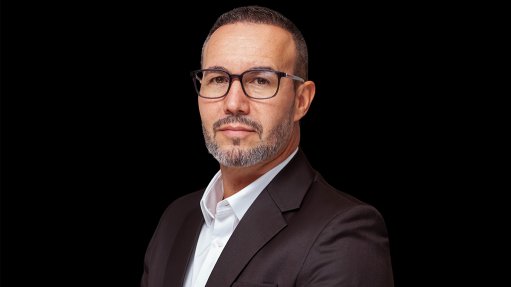It’s time to give Angola reforms the benefit of the doubt
As the death of the region’s leading liberation leader, Robert Gabriel Mugabe, focuses attention on his poor legacy, other liberation leader transitions are thrown into relief. One such transition is Angola’s.
Like Zimbabwe’s Emmerson Mnangagwa, Angola’s new President, João Lourenço, who came to power in 2017, came from within the ruling party. But unlike Mnangagwa, who brought tanks onto the streets to secure his succession in November 2017, Angola’s functioning Movimento Popular de Libertação de Angola (MPLA) ensured a quick and uneventful transition from President Jose Eduardo dos Santos over a year. Again in contrast to Zimbabwe, Lourenço has since poured a formidable degree of energy and application into transforming the domestic economy.
Much has been written on Angola that is cynical and distrusting. Is it putting new wine in an old bottle? The main accusation is that Lourenço is doing what all post-liberation leaders do: mount a vendetta against the outgoing President and his family to consolidate power. Similar, justifiable fears are being raised about the future of Grace Mugabe, the Mugabe children and their amassed fortune.
True, Zenu dos Santos awaits trial for mismanaging the sovereign wealth fund, the Fundo Soberano de Angola. True too, Lourenço’s appointed head of Sonangol, the State-owned oil company, sacked Dos Santos’ daughter, Isabel. Then, in 2018, a new diamond trading law removed a monopoly on sales from the Dos Santos family’s control. Equally, true though, is that these actions bring long overdue corporate and political governance.
Lourenço made clear his views on the enrichment of a small elite at the MPLA congress in June 2019, saying: “It is not acceptable and we cannot be satisfied with the fact that public companies, especially Sonangol and Sodiam (the diamond company), have also been able to finance some of these private businesses as if they were credit institutions.”
Moreover, economic reforms have been too consistent and too far reaching and go too deep to be cosmetic. Lourenço has led a series of structural changes to improve the legal and business environments. Many put these reforms down to the influence of his wife: she was for many years a senior World Bank employee and is steeped in the understanding of the Bretton Woods institutions. Either way, Angola sources say he aims to strengthen democracy based on a free-market economy. New laws and policies make it easier to visit and invest. Critically, investors no longer need an Angolan business partner. Under Dos Santos, government ‘presented’ investors with their business partner – usually drawn from this tiny political elite.
Now government has launched a major, ground-breaking privatisation programme, the Programa de Privatizações (Propriv), which looks set to transform the country’s business landscape in two short years. Equally ground-breaking for Angola, with its historical Cold War links to Cuba and Russia, is that government has hired the World Bank as a strategic consultant to support with the implementation of the programme. Government will privatise its holdings in companies from seven main sectors: mines and petroleum, telecommunications and information technology, finance, transport, agriculture, hotels and tourism – 195 companies in all.
Immediately, in a bid to draw in major international investors, Propriv will sell 30 State-owned flagship companies, including airline TAAG Linhas Aéreas de Angola; Sonangol; diamond mining company Empresa Nacional de Diamantes; Angola Telecom; beer company Companhia União de Cervejas de Angola; Banco de Comércio e Indústria; insurance company ENSA-Seguros de Angola; securities and debt stock exchange Bolsa de Dívida e Valores de Angola; and the State’s shares in Banco Angolano de Investimentos, Banco Económico and Banco Caixa Geral Angola.
The State’s withdrawal from partly privately run companies will cut off funds from underperforming companies that traditionally used the State shareholder to bail them out. These are the cream. Several of the 195 companies up for sale are not in good shape, are inactive or are technically bankrupt.
Privatisation marks a fundamental shift both in political and developmental outlook. Angolan Treasury officials say the stated aim is to put the private sector at the centre of the country’s future economic development to shift from dependence on oil, which currently generates some 95% of export earnings and 75% of tax revenues. Economic Coordination Minister Manuel Nunes Júnior said sales would be principally by public competitive tender and that the World Bank had been brought in to provide foreign investors with the comfort of a credible and transparent process. Moreover, Angola wants to ensure competition and to guard against State monopolies becoming private monopolies. The World Bank’s International Finance Corporation, Multilateral Investment Guarantee Agency and International Development Association will all open offices in Angola.
In short, the consistency of Lourenço’s new policy direction represents the greatest shift in Angola’s business policies since independence in 1975. It reverses the socialist model and sees the State divest significant national assets that had previously been regarded as strategically important. For business, it is good news: international investors bound by tough extraterritorial legislation on corruption and doing business with politically exposed persons, investment opportunities in Angola are now less likely to face the showstopper of Luanda’s avaricious minority elite.
Article Enquiry
Email Article
Save Article
Feedback
To advertise email advertising@creamermedia.co.za or click here
Announcements
What's On
Subscribe to improve your user experience...
Option 1 (equivalent of R125 a month):
Receive a weekly copy of Creamer Media's Engineering News & Mining Weekly magazine
(print copy for those in South Africa and e-magazine for those outside of South Africa)
Receive daily email newsletters
Access to full search results
Access archive of magazine back copies
Access to Projects in Progress
Access to ONE Research Report of your choice in PDF format
Option 2 (equivalent of R375 a month):
All benefits from Option 1
PLUS
Access to Creamer Media's Research Channel Africa for ALL Research Reports, in PDF format, on various industrial and mining sectors
including Electricity; Water; Energy Transition; Hydrogen; Roads, Rail and Ports; Coal; Gold; Platinum; Battery Metals; etc.
Already a subscriber?
Forgotten your password?
Receive weekly copy of Creamer Media's Engineering News & Mining Weekly magazine (print copy for those in South Africa and e-magazine for those outside of South Africa)
➕
Recieve daily email newsletters
➕
Access to full search results
➕
Access archive of magazine back copies
➕
Access to Projects in Progress
➕
Access to ONE Research Report of your choice in PDF format
RESEARCH CHANNEL AFRICA
R4500 (equivalent of R375 a month)
SUBSCRIBEAll benefits from Option 1
➕
Access to Creamer Media's Research Channel Africa for ALL Research Reports on various industrial and mining sectors, in PDF format, including on:
Electricity
➕
Water
➕
Energy Transition
➕
Hydrogen
➕
Roads, Rail and Ports
➕
Coal
➕
Gold
➕
Platinum
➕
Battery Metals
➕
etc.
Receive all benefits from Option 1 or Option 2 delivered to numerous people at your company
➕
Multiple User names and Passwords for simultaneous log-ins
➕
Intranet integration access to all in your organisation


















